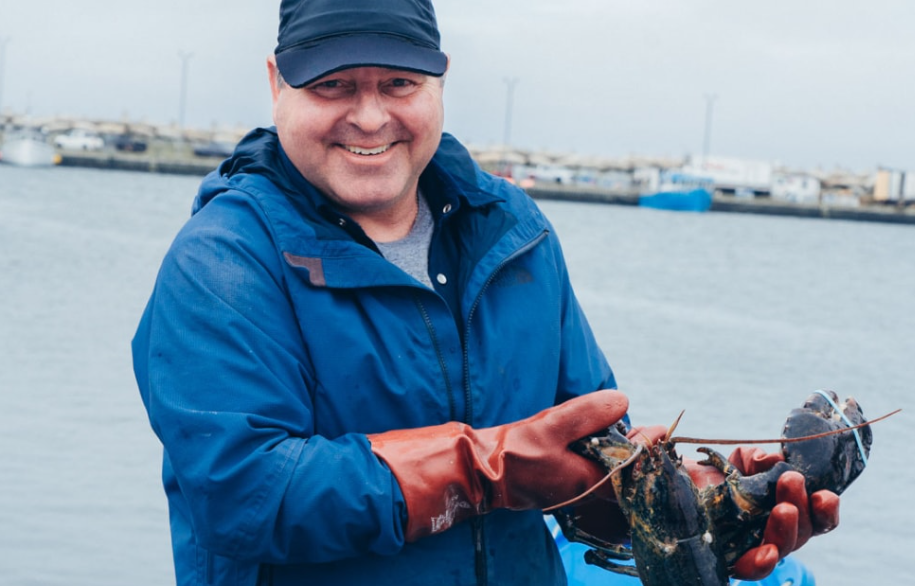SeafoodSource is closely following seafood processing and equipment innovation by compiling a regular round-up of updates from the sector.
- Quebec, Canada-based seafood processing company Les Fruits de Mer Madeleine has received CAD 2 million (USD 1.4 million, EUR 1.3 million) in funding from the Canadian government to expand.
The funds will be used to acquire various equipment for snow crab production, and grow its deep-freeze warehouse, and upgrade facilities, Canada Economic Development for Quebec Regions said in a release.
“One of our government's priorities is ensuring the prosperity of communities,” Minister of Fisheries, Oceans and the Canadian Coast Guard Diane Lebouthillier said in a release. “SMEs are key to economic growth, which is why CED supports them in their efforts to increase their productivity. Les Fruits de Mer Madeleine contributes significantly to the economic vitality of Les Îles-de-la-Madeleine and its success has an impact on the entire region.”
The funds were allocated from the CED's Regional Economic Growth through Innovation program. The program targets entrepreneurs to grow businesses and enhance competitiveness and regional economic stakeholders facilitate growth.
- Americold has broken ground on a USD 127 million (EUR 118 million) 335,000-square-foot cold storage facility in Kansas City Missouri, U.S.A.
Americold said the project is part of a strategic collaboration with Canadian Pacific Kansas City (CPKC) to co-locate Americold warehouse facilities within its CPKC network.
"By combining our cold storage capabilities with CPKC's extensive rail network, Americold is poised to deliver a differentiated offering to support more customers across North America," Americold CEO George Chappelle said in a release.
The facility will also support CPKC's Mexico Midwest Express (MMX) service, its single-line rail service to offer refrigerated shippers between U.S. Midwest markets and Mexico. Combining CPKC's fleet of temperature-protected intermodal containers with Americold's cold storage logistics expertise, both companies can help customers bypass truck congestion at the U.S.-Mexico border and reduce transit times, transport costs, and food waste, Chappelle said.
-Akranes, Iceland-based Skaginn 3X announced the sale of a freezing and glazing system to Chile-based seafood company Friosur. The sale of the multi-lane IQF freezer marks Skaginn 3X’s entry into the Chilean seafood market.
The contract value remains confidential, but the company has confirmed it is worth at least USD 1 million (EUR 928,000).
“This is a very important reference installation for us,” Skaginn 3X Chief Sales Officer Jón Birgir Gunnarsson said in a release. “We’re proud to make our mark in the Chilean seafood industry.”
- Porvoo, Finland-based equipment supplier Lamor has received an order from Norwegian salmon farmer Frøy to place a reverse osmosis system on a wellboat that will use use fresh water to remove lice parasites from its farmed salmon.
“The equipment will be mostly installed inside three containers mounted on deck," Lamor Director of Water and Waste Technologies Petri Vänskä said in a release. "Some pre-filtration devices and pumps are installed in a small space under the deck, which required extremely precise planning."
The EUR 1 million (USD 1.1 million) deal represents Lamor’s entry into the Norwegian market.
"We are really pleased with this breakthrough in the Norwegian market. Norwegian aquaculture is highly concentrated, and shipping companies often own the entire operation chain, increasing the market potential for our advanced systems," Lamor Sales Manager Finn Nilsen said in a release. "Freshwater treatment is a very gentle and ecological way to remove parasites from salmon. It prevents the valuable food source and the resources used to grow it from being wasted."
- El Segundo, California U.S.A.-based aquaculture technology company Shinkei announced USD 6 million (EUR 5.6 million) in seed funding for the launch of its modern fish-processing system, which it describes as a full automation of the ike jime method of harvesting.
"The commercial fishing industry has enjoyed many technological advances over its long history, but we believe one of the biggest advances just arrived," Shinkei CEO Saif Khawaja said. "Enhancing the taste, shelf-life, and overall quality of harvested fish — while at the same time boosting sustainability and eliminating waste — is a win-win for fishermen, consumers, and every step of the supply chain in between. We're thrilled to be able to bring this incredible technology to an industry that has given the world so much."
The fundraising round was led by Cantos, with additional participation by 8VC, Impatient Ventures, Susa/Humba Ventures, Carya Venture Partners, Ravelin Capital, Red & Blue Ventures, Undeterred Capital, and others joining existing investors, the company said in a release.
"At Shinkei, we're focusing on how robotics can bring higher quality fish to consumers in a more sustainable way," Shinkei Vice President of Engineering Reed Ginsberg said. "This process naturally coincides with the toughest robotics problems the world is facing today. Here, we're realizing every roboticist's dream, navigating the convergence of clean-sheet mechanism design and precise motion control. We seamlessly integrate these elements with advanced autonomy and computer vision, driving innovation in the fishing industry one breakthrough at a time."
Shinkei's system is already used by LocalCoho, who sells to Yama Seafood, the purveyor of superior quality fish to Michelin-starred restaurants and fine dining establishments, it said.
"Shinkei's ike jime harvesting robot was critical for LocalCoho's expansion into new markets and sales channels," LocalCoho CEO Michael Fabbro said. "We're thrilled with the cutting-edge technology and support Shinkei has deployed at our farm. It's allowed us to not only meet humane harvesting criteria, but it's greatly improved fish quality. We've seen improvements in texture and shelf life, and now have a more consistent product as well. In addition, our target customers are much more inclined to buy fish that have been humanely harvested – especially fish that have been harvested using ike jime. Shinkei gives us a very unique point of differentiation in the market."








